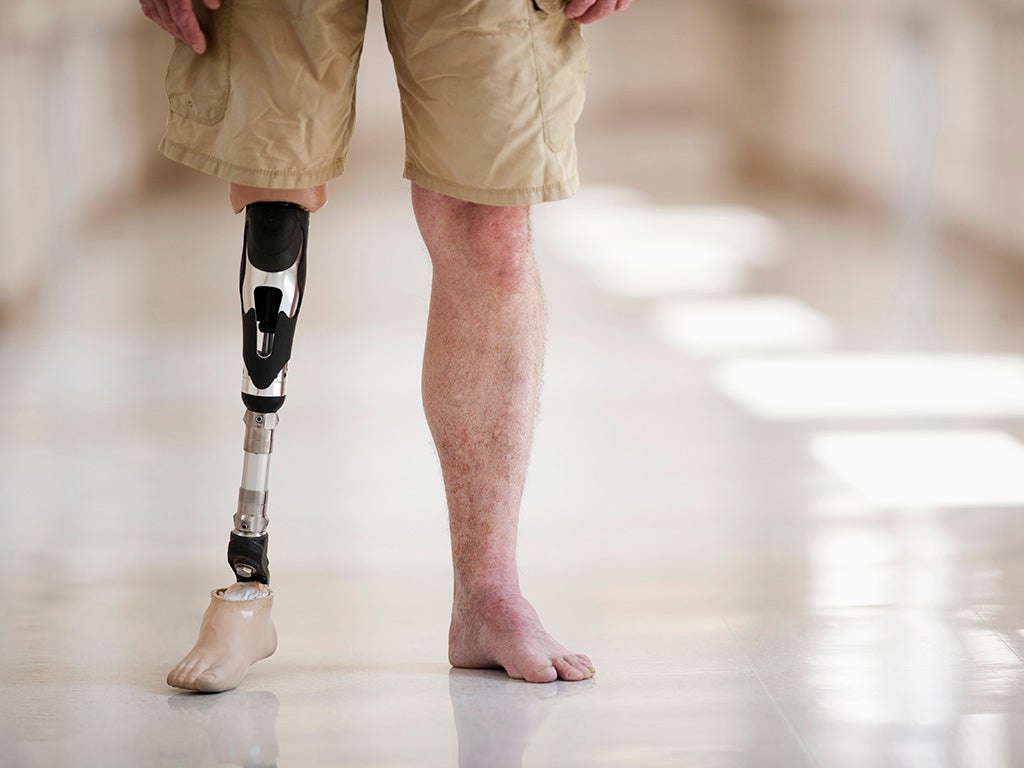Body Integrity Identity Disorder: the condition where sufferers want to be disabled
Sufferers have a mismatch between their physically healthy body and the body with which they identify. Many take matters into their own hands using methods of do-it-yourself amputation.

A number of news outlets have recently reported the case of a woman named Jewel Shuping who was apparently blinded, at her own request, by a psychologist. Allegedly, the psychologist applied a local anesthetic and then poured drain cleaner into her eyes: she gradually lost her sight over the following months.
The woman claimed to have been suffering from Body Integrity Identity Disorder (BIID). Sufferers from BIID experience a mismatch between their physically healthy body and the body with which they identify. They identify as disabled. They often desire a specific amputation to achieve the disabled body they want: for example, the left leg below the knee. The analogy with Gender Identity Disorder is clear: someone with Gender Identity Disorder experiences a mismatch of some kind between their chromosomal and genital sex and the sex they identify with.
BIID strikes most people as bizarre. But mental disorders are sometimes extremely difficult to make sense of. How can someone believe that their arm belongs to someone else (somatoparaphrenia), for example? These disorders are perhaps harder to understand than psychosis because the person may otherwise appear quite rational.
BIID is very rare, and it is not officially recognized by the psychiatric profession. There is no entry for it in the latest version of the DSM, the psychiatrist’s bible. But some psychiatrists think it is a genuine disorder. What cannot be disputed is that some people who are diagnosed, or who diagnose themselves, with BIID are suffering. Cases in which people suffer sufficiently to take drastic steps, like Jewel Shuping, are not all that uncommon among patients. There are many reports of people who have sought surgery, sometimes legally and sometimes illegally, and many who take matters into their own hands using shotguns, chainsaws, dry ice and other methods of do-it-yourself amputation.

Because BIID is rare, there is relatively little research on its treatment. In a small minority of cases, anti-depressants or anti-psychotics, alone or in combination with cognitive behavioral therapy, seem to help. What evidence we have, though, suggests that BIID is remarkably persistent.
Because BIID is persistent, and because it sometimes involves genuine suffering, drastic treatment – even blinding – might sometimes be the best option available. But medical professionals should be extremely reluctant to take such steps. First, they should exhaust every other avenue for treatment. Second, they need to be very sure that the suffering is intensive enough and persistent enough to justify such a dramatic step.
BIID is easily confused with other disorders, such as Body Dysmorphic Disorder, where a person believes (falsely) that some part of them is diseased or ugly. Amputation is not a good treatment for this disorder, both because there are other options, and because it usually doesn’t work in any case: the disorder simply transfers to another part of the body.
Jewel Shuping has said she is sharing her story to raise public awareness of BIID and encourage people with the condition to seek medical help.
So did the psychologist who allegedly blinded Shuping exhaust every treatment option, assure himself that the diagnosis was correct and that her suffering was intense enough to warrant the steps they took? By her own account, they worked together for only two weeks. A period of two years of treatment would be required, not two short weeks.
Jewel Shuping reports that today, years after her blinding, she is very happy with her condition. This is some evidence that the course she chose was the correct one for her. But we can’t be sure. We don’t know how she would feel, or what the quality of her life would be, if she had been treated in some other way. Suffering is of course bad, and professionals have a duty to help with it. But they should be very reluctant to inflict a disability on their patients, even when the patients request it. Perhaps this step is sometimes the best available, but it is step that we should think very long and very hard before taking.
Neil Levy is a professor of philosophy at Macquarie University, Sydney, and a Leverhulme visiting professor at the University of Oxford
Join our commenting forum
Join thought-provoking conversations, follow other Independent readers and see their replies
Comments